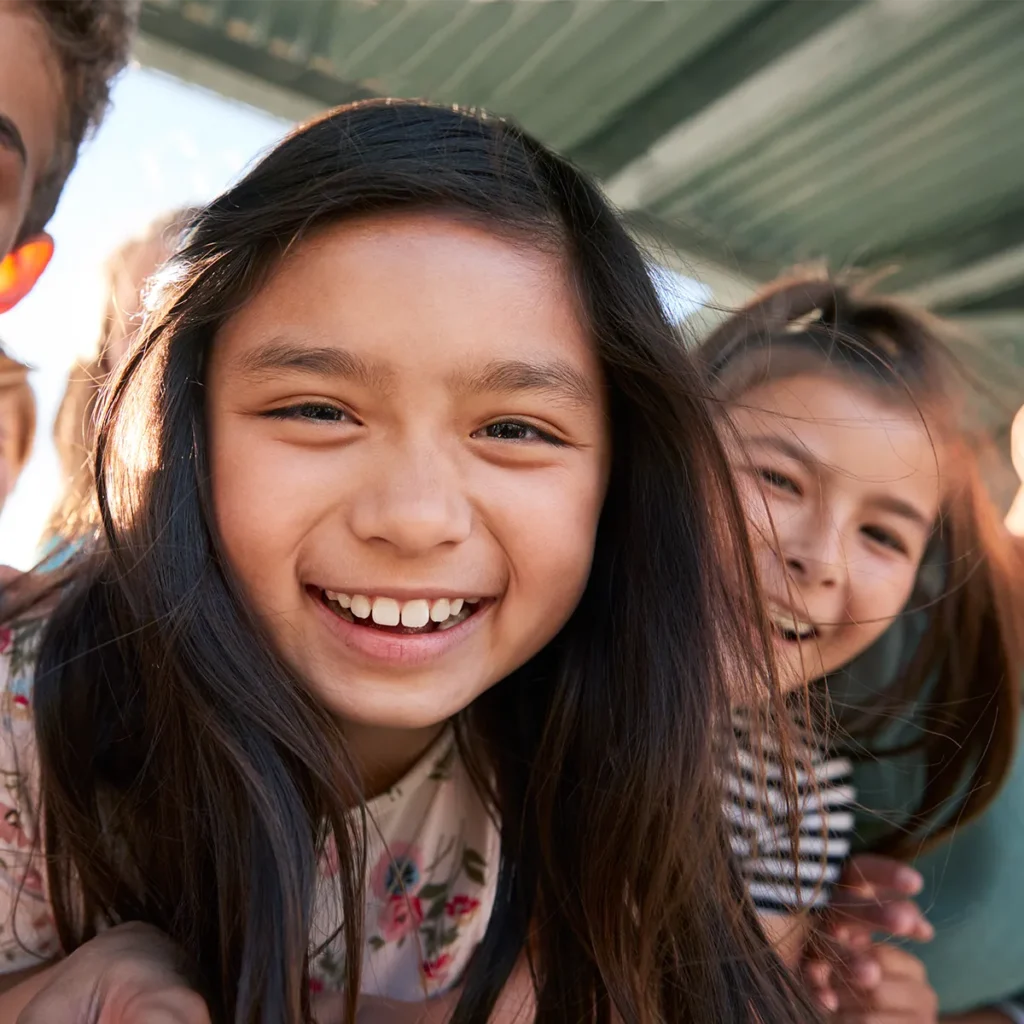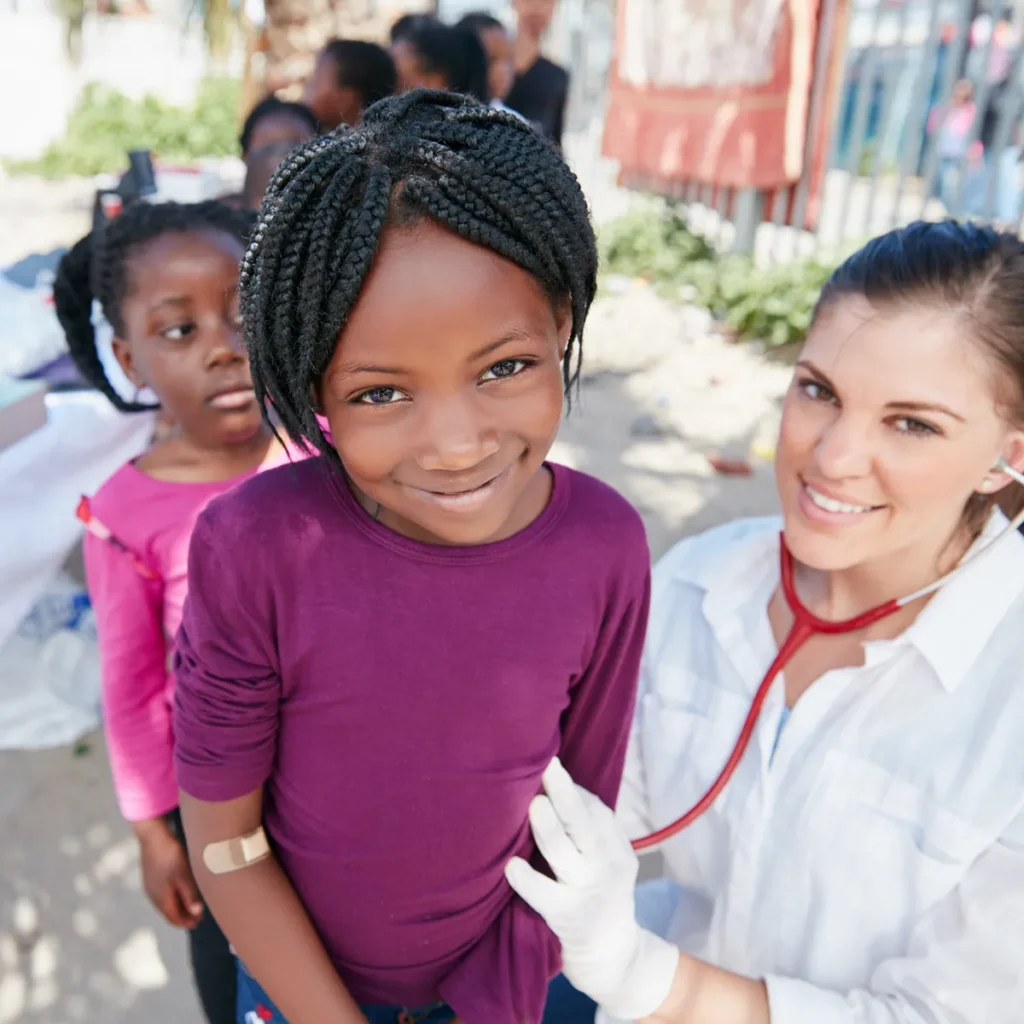
FamilyCare’s Integrated Model of Care
Unlike traditional systems that separate mental and physical care (“carve-outs”), FamilyCare’s model streamlines services through unified claims, referrals, and authorizations.
At FamilyCare, we define health not as a moment in the doctor’s office—but as the cumulative result of our environment, our upbringing, and our ability to belong, be heard, and thrive. That’s why we focus on breaking down systemic barriers and reshaping the foundations of health. Things like education, early learning, family support, public access, and belonging.
Latino Network, a Latine-led nonprofit based in Multnomah County, is doing this work every day. Their culturally specific programs not only support Latine youth and families, they build systems of strength, stability, and opportunity that reverberate across generations.

Founded in 1996, Latino Network was created in response to the growing need for culturally responsive services in Oregon’s Latine communities. What began as a grassroots effort has grown into one of the state’s most impactful community-based organizations.
Their programs span the life course from early childhood education to family stabilization and civic engagement. With over 150 staff members and a wide network of educators, mentors, advocates, and health workers, Latino Network reaches thousands of individuals every year. What makes their model unique is its integration of cultural identity, systemic advocacy, and wraparound support. Whether they’re leading school-based programs or shaping statewide policy, Latino Network remains deeply rooted in the strengths of the community it serves.
This is not charity work, it’s community power-building. It’s one of the most effective ways to improve long-term health outcomes across generations.
Health begins long before birth, and Latino Network’s early childhood programs recognize that. Through Juntos Aprendemos, children aged 3–5 and their caregivers participate in bilingual, culturally affirming learning environments that support language, literacy, and school readiness.
But the impact reaches deeper than academics. By engaging mothers and caregivers from the start, these programs support prenatal and maternal health, improve nutrition and stress regulation in the home, and create an early buffer against toxic stress and trauma—key components in shaping a child’s lifelong physical and emotional health. These efforts speak directly to what research calls epigenetic factors: the intergenerational conditions that shape how genes are expressed and how well we thrive.
Latino Network understands that for children to be healthy, their social environment must be safe, nurturing, and affirming. That’s why their youth programs focus on strengthening family dynamics, building resilience, and restoring connections through culturally specific mentorship.
Programs include:
These programs reduce the long-term impact of Adverse Childhood Experiences (ACEs) by helping young people build protective factors like emotional regulation, cultural pride, and connection to trusted adults. They also serve as a powerful intervention against social isolation, creating belonging where there was once distance or fear.
We believe systems should change—not people. Latino Network embodies that belief through its policy advocacy, civic engagement, and systemic approach to equity. Their work targets foundational community-level health drivers, including:
Because they design programs with the community, their interventions are responsive, inclusive, and effective. This approach builds public trust, activates public services, and ultimately improves public health outcomes at scale.
Latino Network reminds us that health is not only about avoiding illness, it’s about building lives of purpose, safety, and possibility.
We’re proud to uplift and learn from organizations like Latino Network, whose work reflects our own guiding principles: centering equity, valuing community wisdom, and investing in long-term systems change.
They are not just allies in the work—they’re proof that transformation is possible when communities lead, and systems listen.
Explore Latino Network’s story at www.latnet.org
Determinants of Health: Adverse Childhood Experiences, Education, Isolation & Belonging, Cultural Factors, Access to Healthcare, Ethnicity

Unlike traditional systems that separate mental and physical care (“carve-outs”), FamilyCare’s model streamlines services through unified claims, referrals, and authorizations.

We’re proud to highlight the work of the Maurice Lucas Foundation (MLF)—a powerful example of how holistic, community-based intervention can transform the determinants of health for underserved youth.

This slide presentation summarizes FamilyCare Health’s 2025 testimony to the Oregon Senate Committee on Health Care in support of Senate Bill 388.

Healthcare on wheels brings primary care, preventive screenings, mental health services, and even dental care directly to underserved communities. These clinics are not just a temporary fix; they are a cost-effective, community-driven solution to a growing healthcare crisis.

By signing up for our news, policy, and advocacy newsletter.